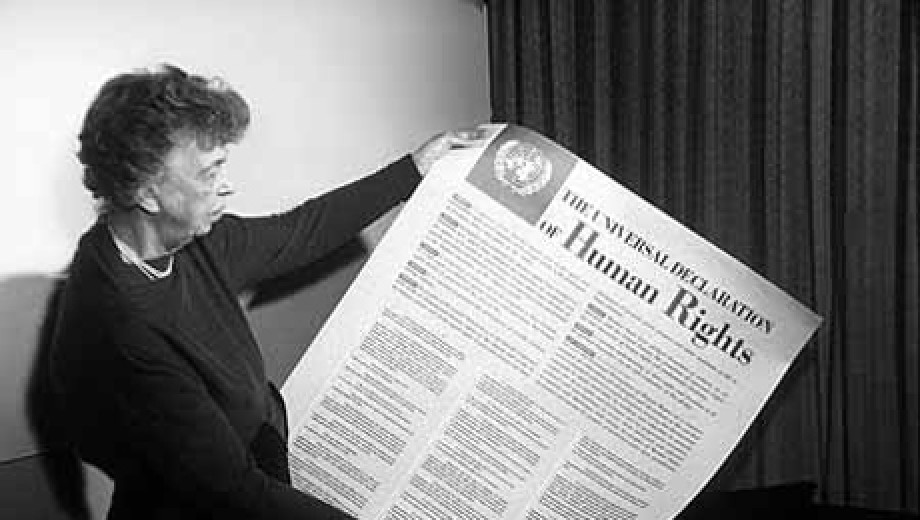Certain years stand out as moments that shaped the course of history. But when viewing history through multiple lenses, the question “What might have been?” opens broad vistas, particularly when considering political alignments in tumultuous times.
This is precisely what the project Around 1948: Interdisciplinary Approaches to Global Transformation aims to do. The yearlong seminar examines cultural and political changes immediately following the Second World War. Coordinated by the Franke Institute for the Humanities and funded by the Andrew W. Mellon Foundation’s Sawyer Seminar program, the project proposes to look at the time around 1948 from the perspectives of multiple disciplines.
“It was a moment that seemed to us so rapidly evolving,” says Deborah Nelson, associate professor in English language and literature and a member of the seminar steering committee. “People were in migration, and institutions that had formerly appeared incredibly durable were suddenly incredibly fragile.”
Boundaries changed as new nations emerged or partitioned. Issues such as human rights took on a global frame.
While the postwar era is commonly viewed as a time of rebuilding after the destruction of the war, the seminar looks beyond the order imposed by Cold War logic. Much of today’s political world took shape around this time, and the scholars involved in the project are examining political and cultural transformations while questioning whether certain alignments might have evolved differently.
“One of the phrases from the grant proposal was ‘the paths not taken,’" says Nelson. "We wanted to revisit the issues people cared about, many of which were dropped or reconfigured during the Cold War."
The seminar grew out of the idea, posited by Franke Institute director and English professor James Chandler, AM’72, PhD’78, that 1948 was a seminal year.
Chandler pulled together a steering committee in late 2009 that included Nelson and English department colleague Leela Gandhi, as well as Christine Stansell and James Sparrow from history and Lisa Wedeen, a professor in political science.
“We were very much looking at ways in which to find interdisciplinary approaches to shared histories,” says Gandhi. “We need social scientists to tell us historically what happened in 1948, and we need people in the humanities to talk about what might have happened.”
The seminar launched in October 2011 with film screenings and a two-day conference that centered on the end of the war, Year Zero: The World Unmade. In winter quarter the focus moved to “traumatic cosmopolitanism,” studying the massive movements of refugees and others who were returning from war or transplanted either voluntarily or unwillingly.
Nelson and Sparrow taught a graduate course on the topic through the Center for Disciplinary Innovation, another Mellon Foundation project at the Franke Institute. “The courses became a way to really dig deeply within an area,” says Nelson.
Gandhi and Wedeen are teaching a spring course focusing on postcolonialism in the Middle East and Asia. “What excites me the most is taking the opportunity to think about how much Western knowledge owes to non-Western histories,” says Gandhi. “At this particular moment [around 1948], events both in the West and elsewhere are crucial to what we are today.”
Lectures, workshops, and panel discussions throughout the spring quarter have explored the emergence of new nation-states, the politics of nonalignment, and socialist experiments. The final conference, After 1948: Realignments in Politics and Culture, was held April 26–27 and brought participants from Chicago and beyond.
Learn more about Sawyer Seminar events.


Add new comment